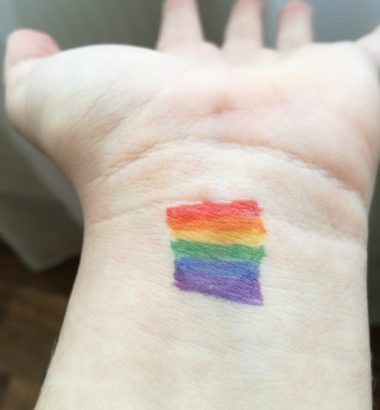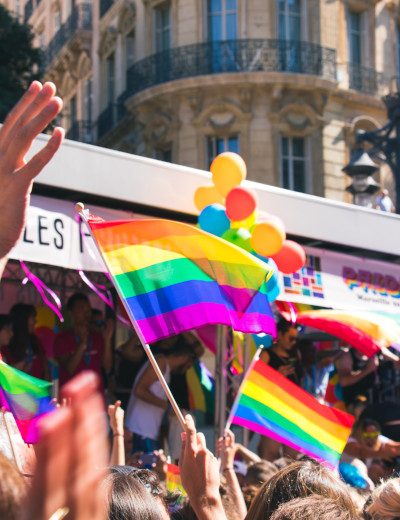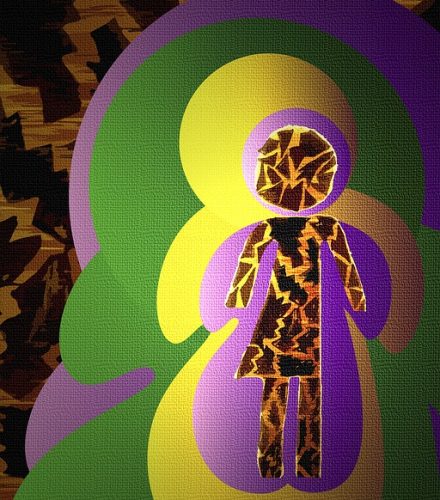NeprocjenjivA
Q&A
Who is NeprocjenjivA for?
Although this page is for all those who are interested in any part of this topic, it is primarily for all those who find spirituality important and identify as L, G, B or T, I persons, or are questioning. We are aware that this path can be marked by fear, confusion, guilt and many other feelings that do not allow us to accept ourselves.
You may be alone in a place where you cannot accept yourself, even though you feel attracted to the same sex or you feel that there is a incongruence between how you experience yourself and the sex attributed to you at birth. However, this page is for you and we are here for you. In the text that follows you can see how we work and what our goals are. What you can find with us is: acceptance!

Did I choose to be L, G, B or T?

Many people, especially believers, are still convinced that at some point we have chosen to become L, G, B or T. They believe and repeat it so convinsingly that we ourselves start to believe in it and we persistently try to remember when that moment was when we decided to be who we are. The weight becomes even greater when they promote the theory that our mothers were too protective or we had an absent father or some other circumstance prevented us from identifying with our own gender or question it.
Today’s psychology, but also a large number of church documents claim that this is not a choice. None of us woke up one morning and decided that as of today we could be an L, G, B or T person. We were born that way, we grew up that way and we will stay that way. Experience tells us that all those who live in the belief that they have chosen this are faced with many different insecurities, fears and struggle to love themselves and then accept themselves.
The answer to the question of why we were born as L, G, B or T persons is still quite unclear. Although answers are being sought, there is much that is unsaid and unexplored. But one thing is for sure, you didn’t choose and you are whole and enough as who you are.
Does God love me?
So many of us who are LGBTI, and have grown up more or less as an active part of our community or parish, struggle sooner or later with this question. Unfortunately, as we grew up, we heard so many sentences, remarks, and words that hurt us that we find it hard to believe God thinks otherwise. The impression we get is that there is an invisible border around us. God’s love reaches out to everyone, but not to us.
In Christianity, Jesus devoted much of his ministry to spending time with and advocating for those who were (and unfortunately many of them remained) marginalized. He testified of God’s love that has no limits! One thing that is even theologically indisputable is God’s love for all. We have not found a place in the Bible, theological books, or catechism that says that God loves all but…
Are you still wondering if that love is valid for you too? Our answer is YES! Even if someone thinks you are in sin, they cannot say that God does not love you. God loves without “but”.
What does psichology say?
Many of today’s prejudices about LGBT people are based on the opinion of outdated psychologists and psychotherapists. Yet as far back as 1973, many changed their minds. Although some people claim this is due to the pressure and lobbying from the LGBT community, psychologists, psychotherapists and psychiatrists say their opinion was changed by their own experience of working with LGBT people. Even Freud, whose theory is invoked by those who still consider it a mental disorder to be treated, told one mother in a letter: “Homosexuality may not be an advantage, but there is certainly nothing to be ashamed of. It is not a vice, a humiliation, it cannot be classified as a disease; we assume that it is a variation of sexual functioning… “
In 1973, in the official American manual “Diagnostic and Statistical Manual of Mental Disorders”, homosexuality was excluded as a mental disorder, while in 1990, the “International Statistical Classification of Diseases and Health Problems” (ICD) did the same.


Trans * people had to wait longer to be excluded from the list of mental disorders. There is now talk of gender incongruence, and what needs to be treated is “gender dysphoria”, stress caused by a mismatch between a person’s gender identity and the gender attributed to them at birth. However, this still does not apply to Croatia. Since the transition requires professional diagnosis and support, this includes obtaining a diagnosis that belongs to the “Gender role Disorder”.
Given this, many psychologists and psychiatrists will provide support to LGBT people and personally advocate for the fact that it is not a mental illness. Namely, many warned of the danger of “treating” people from homosexuality and transgenderism. After many years of trying to treat homosexuality and transgenderism, the consequences for these people have been shown to be depression, anxiety and a bad self-image, while still remaining gay, bi or trans.
What does Theology say?
There are various theological approaches to biblical texts. Some of them are historical and cultural. It is clear that 6 texts from the Bible are used that mention something related to same-sex relationships, and are attributed to LGB people. There are slightly fewer texts on the basis of which a conflict related to trans * persons arises. Although there are various interpretations of these texts, we do not consider ourselves experts to start this discussion. However, what we can say with certainty is that the Bible speaks of God’s love that applies to every person and that Jesus himself did not speak on this subject.
Our goal is not to enter into a theological conflict or debate since we do not see this as an area of our competence. We want to focus on personal stories that testify that the current attitudes of society and believers have caused a lot of pain to LGBT people. With these attitudes, they were mostly consciously or unconsciously excluded from the life in society and the church, but above all they were deprived of faith and trust in God’s love for all.
You can hear and read a slightly different theological approach on this website and in our posts on our Facebook profile and Facebook page.
What are the needs of LGBT people?
We are upset to hear sentences that objectify and hypersexualize LGBT people. We are so often reduced to the sexual need.
When we ask LGBT people, “What do you long for the most?”, We hear the same words over and over again. “I long for someone to hug me at the end of the day, to cuddle while we watch a movie, talk about our day, and experience that someone cares about me.”
From this sentence only, we can come to the conclusion that LGBT people need closeness, fellowship, touch, safety, relaxation, intimacy, exchange, love… But instead of listing all the needs, it is easier to say that LGBT people have exactly the same needs as everyone else. The only difference is in the gender of the person with whom we can achieve the ultimate intimacy, closeness, with whom we can build partnership, exchange and with whom we can experience the love that most of us long for.

Defining some terms…
LGBTI – Lesbian, Gay, Bisexual, Trans*, Intersex.
Lesbian – a woman who is emotionally, physically, sexually and / or spiritually attracted to other women.
Gay – a man who is emotionally, physically, sexually and / or spiritually attracted to other men. Sometimes the term gay is used for both men and women.
Bisexual – a person who is emotionally, physically, sexually and / or spiritually attracted to same and opposite sex.
Transgender person – a person whose gender identity ascribed at birth does not match his or her own gender identity. In transgender people, the personal, inner sense of gender (being male or female) does not coincide with the biological sex and they want to live in the gender they feel as their own, rather than in the gender related to the attributed (biological) gender.
Transsexual person – a person who wants to have a gender adjustment operation or is in the process of gender adjustment or has already partially or completely modified his body to express his sense of self. The term transmen is used for a person who is undergoing or has undergone a gender adjustment from a woman to a man, and the term trans woman is used for a person who is undergoing or has undergone a gender adjustment from a man to a woman.
Trans* people can be heterosexual, lesbian, gay or bisexual.
Heterosexual or straight – a person who is emotionally, physically, sexually and / or spiritually attracted to people of the opposite sex.
Sexual orientation – refers to emotional, physical and different attraction to people who may be of the same and / or different sex / gender. Three sexual orientations are most commonly mentioned: bisexual, homosexual, and heterosexual.
Coming out, coming out of the closet – the process in which LGBT people relise and reveal their sexual orientation and / or gender identity both for themselves and to others. We use the same term to describe the act of talking to a person about one’s sexual and / or gender identity.